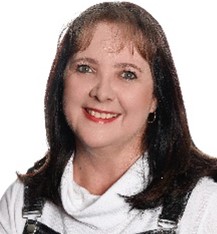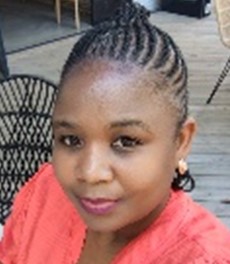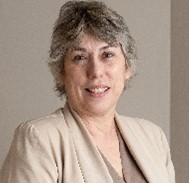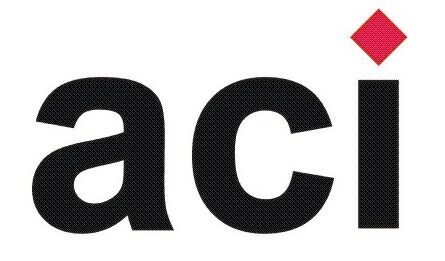The Mini Tracks for ICER
- Academic Community Engagement
- Education Research in Sustainable Development
- Educational Materials Focused on Supporting and Enhancing Scientific Literacy in STEM
- Innovative Assessment Strategies
- Enhancing Postgraduate Students’ Self-directedness: Metacognitive Strategies for Research Supervisors and Research Students
- SoTL – the Pitfalls and Practicalities of Researching your own Teaching and Learning Practices
Academic Community Engagement
 Mini-Track Chair: Dr. Rika Swanzen,The Independent Institution of Education
Mini-Track Chair: Dr. Rika Swanzen,The Independent Institution of Education
For this mini-track proposals on impactful academic endeavours are sought to contribute to the conference aim of sharing best practices in active learning, student engagement and teaching for social justice. The important relationship between higher education and their communities are highlighted through the sharing of impactful projects and creative teaching approaches. Both evidence-based practice and practice-based evidence can be shared to celebrate the organic exchange that occur through reciprocal university-community partnerships. Contributions can be in the form of empirical and experiential research, case studies, work-in-progress, posters, doctorate research projects, practitioner best practices or models, and product demonstrations. Abstracts are due by 8 May. Full papers on accepted abstracts are due by 20 June.
Topics of interest include but are not limited to:
- Overcoming challenges of the civic university
- Transformational leadership in higher education
- Service-learning as a catalyst for societal change
- Occupying the knowledge creation role in the Quintuple Helix Model
- Guidelines for multicultural collaborative methodologies and engaged scholarship
Education Research in Sustainable Development
 Mini-Track Chair: Mr Ockert R. Pretorius, Department of Urban and Regional Planning, University of Johannesburg
Mini-Track Chair: Mr Ockert R. Pretorius, Department of Urban and Regional Planning, University of Johannesburg
The aim of this mini track is to explore the role of education in fostering sustainable development in diverse contexts of research and practice. Guided by the transdisciplinarity required for the achievement of the Sustainable Development Goals, related sessions provide an opportunity for academics, policymakers, industry stakeholders, and students to collaborate and discuss current challenges, potential solutions, and opportunities to enhance the methods and approaches to knowledge transfer and learning that support sustainability transitions. Education approaches in the context of economic, social, and environmental disruptions ought to be change-orientated and focussed on catalysing transformation in the spheres of policy, curriculum, theory, and practice.
Within the dynamic settings of the built environment, climate considerations, and social justice, aspects related to accountability, resource efficiency, and global citizenship are central to teaching and learning outcomes. These include knowledge co-creation and student participation. Relevant research themes are centred on pedagogical models to incorporate sustainability in the teaching and learning process; innovative teaching approaches; application of technology; curriculum transformation toward sustainability imperatives; and emerging trends in research and practice. This mini track seeks to broaden the debate on the role of Scholarship of Teaching and Learning in sustainable development and encourages the sharing of research findings, innovative solutions, and case studies toward this end.
Topics of interest include but are not limited to:
- Innovative teaching approaches to engage students in aspects of sustainable development.
- Application of technology to enhance sustainability knowledge transfer.
- Curriculum transformation initiatives toward integrating aspects of sustainability within a transdisciplinary context.
- Emerging trends in sustainability education research and practice.
- Pedagogical models to incorporate sustainability in the teaching and learning process.
Educational Materials Focused on Supporting and Enhancing Scientific Literacy in STEM
 Mini-Track Chair: Professor Stavroula Andreopoulos PhD,Teaching Stream, University of Toronto, Dept. of Biochemistry, Canada
Mini-Track Chair: Professor Stavroula Andreopoulos PhD,Teaching Stream, University of Toronto, Dept. of Biochemistry, Canada
The development of science literacy and communication skills are highly valued by both academia and industry. The are important for study and understanding but in particular for future career growth. The teaching of these skill have always been challenging for educators. As such, this mini-track is discussing educational materials (i.e writing assignments, e-modules, in-class group activities) that support and enhance learner communication, reflective abilities, critical thinking and oral/written skills in science education. We are interested in papers that look at the creation, sharing and implementation of materials.
Topics of interest include but are not limited to:
- Materials for use in Science Education
- Studies promoting science literacy through the use of educational materials
- Writing Assignments
- E-module creation
- In-Class Group activities
- Evaluation of Educational Materials
- Ethics of Sharing Materials
- Educational Materials for different learning styles
Innovative Assessment Strategies
 Mini-Track Chair: Dr Ayanda Pamella Deliwe,Nelson Mandela University, South Africa
Mini-Track Chair: Dr Ayanda Pamella Deliwe,Nelson Mandela University, South Africa
Assessments are very important in tracking students' progress and understanding if students have indeed learned. Many students do not have the confidence to enter into the world of work because of the way they are assessed in some Higher Education Institutions not being in line with the real work situations. Higher Education Institutions must revisit their assessment strategies to align them with ensuring that students have indeed learned. We cannot assess students the way assessments were done 10 to 15 years ago because the way of doing things has changed with the vast increase in technological advances. The question we should be asking ourselves is, are sit-down exams still relevant and do they contribute to real work-life situations? What other alternatives are there to ensure that the graduates are assessed in a way that makes them to be work-ready?
This track will explore the different assessment methods that could be used to improve and track the students' success and to improve the confidence of students to enter into the work environment.
Topics of interest include but are not limited to:
- Designing assessments of student learning
- Effectiveness of assessment method
- The role of assessments in student learning outcomes
- The role and impact of technology in assessments
Enhancing Postgraduate Students’ Self-directedness: Metacognitive Strategies for Research Supervisors and Research Students
 Mini-Track Chair: Dr Brenda van Wyk,The University of Pretoria
Mini-Track Chair: Dr Brenda van Wyk,The University of Pretoria
Students busy with their master’s and doctoral studies succeed when very specific psychological needs are met. Fostering self-directedness in postgraduate students involves a combination of mentorship, guidance, and opportunities for them to take ownership and get a sense of self-regulation in doing their research dissertations and projects. Supervisors inadvertently find themselves in a situation that other unintended factors must be managed. Providing a supportive environment where they can develop and demonstrate these skills is key to their success in completing their dissertations.
This mini track aims to provide an opportunity to both postgraduate students, and supervisors to reflect on the aspects related self-determination, and deliberate on the metacognitive needs of students.
The chairs encourage submissions with critical analysis, autoethnographic accounts, case studies, and literature reviews.
Topics of interest include but are not limited to:
- Factors motivating Postgraduate masters and doctoral students to do timely and quality research projects
- The influence of modality of research supervision
- Fostering self-determination and self-regulation of postgraduate researchers
- Cultivating metacognition and metaliteracy fluency towards research success
- The pro’s and cons of group supervision
- Factors that make research students drop out
SoTL – the Pitfalls and Practicalities of Researching your own Teaching and Learning Practices
 Mini-Track Chair: Professor Gerda Reitsma,Independent Higher Education Consultant, South Africa
Mini-Track Chair: Professor Gerda Reitsma,Independent Higher Education Consultant, South Africa
Researching your own teaching and learning practices can contribute to better practices and increased student success. The Scholarship of Teaching and Learning (SoTL) is a scientific process of understanding the what, why and what if of teaching and learning practice through applied educational research methodology. However, the ethical and scientific pitfalls associated with the lecturer as researcher, using your own students as research participants and classroom as research setting requires a careful and sensitive approach to this kind of research.
In this track, we will share with you best practices and recommendations for ethical and scientific research methodology to conduct SoTL research in a way that will a) produce publishable research findings; b) adhere to ethical requirements; c) impact teaching and learning practices; and d) contribute to student success.
Topics of interest include but are not limited to:
- SoTL – where to start – from idea to research topic.
- Qualitative or Quantitative? Choosing a research design for SoTL research.
- The lecturer as researcher – flagging the ethical issues in time.
- Where and how to publish SoTL research.

